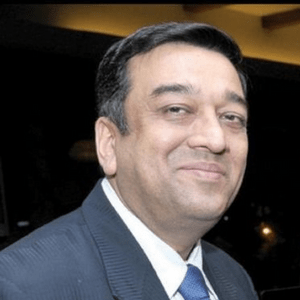Today’s workforce is a diverse mix of generations working together. Baby boomers, Gen X, millennials, and now Gen Z are all working side by side in many organisations. With each generation comes its own set of strengths and challenges, and the key to a successful multi-generational team is to understand and utilise the strengths of each individual.
How can Gen Z add value?
Gen Z, also known as digital natives, has grown up with technology at its fingertips. Members of this cohort are comfortable with social media, mobile devices and the latest digital tools. After all, this is the first generation to have access to the internet at a very young age. Therefore, they have much to offer:
Digital capability
Digital capability is a significant strength that can be leveraged by a multigenerational team. With the rapid digitisation of many industries, organisations need employees who can adapt to new technologies quickly. Gen Z’s digital expertise can be an asset in ensuring that organisations remain competitive and relevant.
“It is important to focus on the strengths of each generation and utilise those strengths to create a productive and cohesive team.”
Atul Mathur, executive VP, Aditya Birla Capital
According to Atul Mathur, executive VP, Aditya Birla Capital, the biggest contribution Gen Z makes is in the form of advanced technological intelligence and expertise. He says, “As many aspects of business become digital, it is essential to have employees who are comfortable and confident in using technology. Gen Zers possess this digital knowledge and can use it to develop collaborative solutions with other employees who have domain expertise in particular functional areas. Together, they can create innovative and efficient solutions that benefit the organisation as a whole.”
“It is important to focus on the strengths of each generation and utilise those strengths to create a productive and cohesive team. In this context, one of the biggest strengths of Gen Z employees is their digital capability,” shares Mathur.
Fresh perspective
While Gen Z may lack experience in certain areas, it has a fresh perspective that can bring new insights to the table. Gen Zers can contribute to a multigenerational team by collaborating with other generations in the organisation. They can work with other generations to ensure that their digital expertise is applied in a way that aligns with the organisation’s goals and objectives.
Tech education
Gen Z can also help bridge the gap between the senior generation and technology. The senior generation may struggle with adopting new technologies, but Gen Z can help them understand the benefits of these tools and how to use them effectively. This can lead to increased efficiency and productivity in the organisation.
Flexibility
Gen Z’s focus on flexibility in the work arrangements can help companies tap into a diverse talent pool. Many Gen Zers are not interested in the traditional 9 to 5 office routine and are open to working part-time, as freelancers, or in contract roles. This allows companies to access a wide range of skills and perspectives, which can help drive innovation and growth.
Arjun Singh, CHRO, Dixon Technologies, rightly points out, “One of the key traits that sets Gen Z apart is its preference for work-life balance. Unlike previous generations that valued work above everything else, Gen Z prioritises a balanced lifestyle, with work being just one aspect of it. This mindset can be leveraged by companies to provide flexible work arrangements, such as remote work, which can help attract and retain top talent.”
Empathy
Gen Z is known to be empathetic towards others, and this trait can have a significant impact in the workforce. Empathy can be defined as the ability to understand and share the feelings of others. In a work setting, this can help build better relationships, increase teamwork, and create a more positive work culture.
“Unlike previous generations that valued work above everything else, Gen Z prioritises a balanced lifestyle, with work being just one aspect of it.”
Arjun Singh, CHRO, Dixon Technologies
Gen Z’s ability to understand and relate to people of different backgrounds, experiences, and perspectives can help bridge communication gaps and build trust among colleagues. This can be particularly helpful in a multi-generational workforce where differences in values and work styles can sometimes create conflicts.
How can Gen Z’s skills be leveraged?
Sharad Verma, VP and CHRO, IRIS software, says that each generation comes with unique values and attitudes. However, managing Gen Z can be challenging, especially for older generations — such as millennials and boomers — that may have different work styles and communication preferences.
Understand expectations
“For Gen Z to reach its full potential and be able to contribute more to the workforce, it is essential for managers to take the time to understand the workplace needs and expectations of the members of this generation. This involves recognising and valuing their digital dexterity and being able to empathise with their values and beliefs, such as their focus on work-life balance and diversity and inclusion,” suggests Verma.
“For Gen Z to reach its full potential and be able to contribute more to the workforce, it is essential for managers to take the time to understand the workplace needs and expectations of the members of this generation.”
Sharad Verma, VP and CHRO, IRIS
Offer growth opportunities: Singh believes that exposing Gen Zers to real-life business problems and cross-functional teams can help develop future leaders and foster innovation.
“By providing opportunities for Gen Z workers to work on challenging projects with seasoned professionals, companies can help build their skills and confidence, while also gaining fresh perspectives and ideas,” adds Singh.
Show the bigger picture
Mathur rightly points out, “Everyone in a multigenerational team is aligned and working towards the same goal; it is crucial to have effective communication and leadership. Leaders should educate and guide employees towards understanding the bigger picture of the company’s vision and goals. This can help employees understand their role in contributing to the organisation’s success and motivating them to work collaboratively towards achieving common goals.”
To ensure that a multigenerational team functions effectively, it is essential to align everyone with the bigger picture of the organisation’s goals and objectives. Leaders need to help employees understand how their role fits into the overall mission of the company and how they can contribute to achieving it. Gen Z can play a significant role in achieving these goals by collaborating with other generations and providing insights on the latest technologies.
Gen Z has a lot to offer as part of a multigenerational team. The digital expertise and fresh perspective Gen Zers bring, help generate new ideas and insights. By working together, all generations can leverage their strengths and contribute to the success of the company. It is essential for leaders to help align everyone with the organisation’s goals and objectives to ensure a productive and collaborative work environment.






